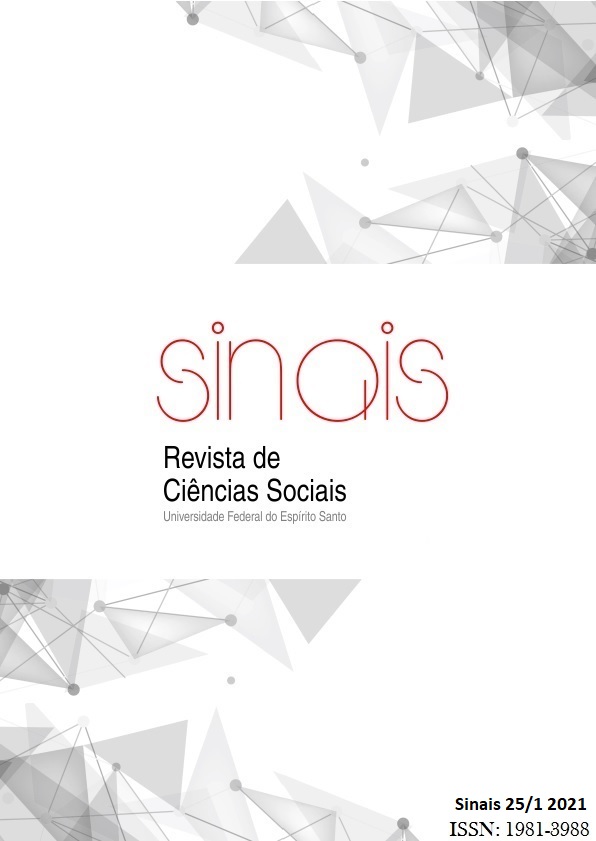As vivências de juízas e promotoras negras: representatividade e racismo
Abstract
Quais são as experiências cotidianas das mulheres negras que atuam em determinados espaços de poder? A presença de pessoas negras nesses espaços é suficiente para combater o racismo dentre e fora dessa instituição? Esses foram alguns, dos muitos, questionamentos que impulsionaram a produção deste trabalho, cujo objetivo central é relatar as experiências cotidianas de juízas e promotoras autodeclaradas negras a fim de analisar eventuais casos de discriminação racial. Busca-se ainda identificar se a mera ocupação desses espaços seria suficiente para combater o racismo dentro e fora da instituição. A fim de concretizar esses objetivos, foram realizadas (em 2020) entrevistas do tipo narrativa de vida (BERTAUX, 2010), por meio de videoconferência, pautadas em um questionário semi-estruturado com: 1 promotora de justiça do Estado do Maranhão, 1 promotora de justiça do Estado do Paraná, 01 juíza federal da Bahia e 01 juíza do Estado do Rio Grande do Sul. Com o intuito de resguardar a identidade das entrevistadas, nomes fictícios foram usados, ademais, outras informações que poderiam identificá-las de alguma forma também foram suprimidas do texto. É importante frisar que a presente pesquisa busca se colocar no “campo de resistência epistemológica” e priorizar o trabalho de pesquisadoras e pesquisadores negros (a) latino-americanos, com enfoque na produção de mulheres.
The experiences of black judges and promoters: representativity and racism
ABSTRACT
What are the daily experiences of black women working in certain spaces of power? Is the presence of black people in these spaces enough to fight racism inside and outside the institution? These were some, of the many, questions that drove the production of this article, whose main objective is to report the daily experiences of self-declared black judges and prosecutors in order to analyze possible cases of racial discrimination. It also seeks to identify if the simple occupation of these spaces would be sufficient to combat racism inside and outside the institution. In order to achieve these objectives, we conducted (in 2020) interviews of the narrative life style (BERTAUX, 2010), by videoconference, based on a semi-structured questionnaire with 1 prosecutor from the State of Maranhão, 1 prosecutor from the State of Paraná, 1 federal judge from Bahia and 1 judge from the State of Rio Grande do Sul. In order to protect the identity of the interviewees, fictitious names were used, and other information that could identify them in any way was also suppressed from the text. It is important to emphasize that this research seeks to place itself in the "field of epistemological resistance" and to prioritize the work of Black Latin American researchers, focusing on the production of women.
Keywords: Racism, Black Women, Black Judges and Prosecutors, Representativeness.
Downloads
Downloads
Published
Issue
Section
License
Autores que publicam nesta revista concordam com os seguintes termos:
- Autores mantém os direitos autorais e concedem à revista o direito de primeira publicação, com o trabalho simultaneamente licenciado sob a Licença Creative Commons Attribution que permite o compartilhamento do trabalho com reconhecimento da autoria e publicação inicial nesta revista.
- Autores têm autorização para assumir contratos adicionais separadamente, para distribuição não-exclusiva da versão do trabalho publicada nesta revista (ex.: publicar em repositório institucional ou como capítulo de livro), com reconhecimento de autoria e publicação inicial nesta revista.
- Autores têm permissão e são estimulados a publicar e distribuir seu trabalho online (ex.: em repositórios institucionais ou na sua página pessoal) a qualquer ponto antes ou durante o processo editorial, já que isso pode gerar alterações produtivas, bem como aumentar o impacto e a citação do trabalho publicado (Veja O Efeito do Acesso Livre).


